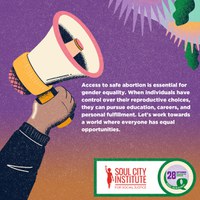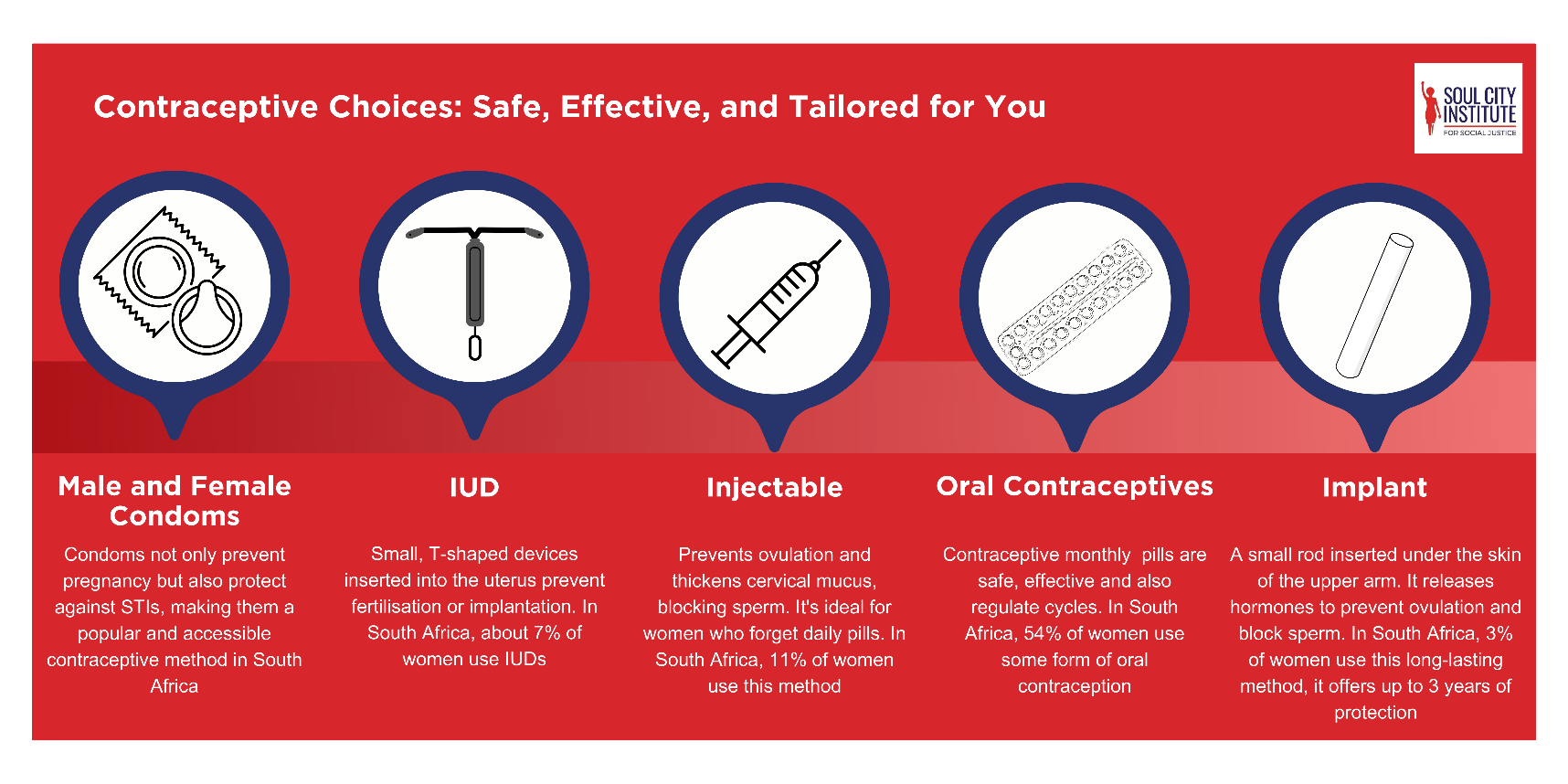
World Contraceptive Day and World Safe Abortion Day

As South Africa marks the World Contraceptive Day (26 September) and World Safe Abortion Day (28 September), Soul City Institute (SCI) is intensifying efforts to raise awareness around sexual and reproductive health and rights (SRHR), focusing on contraceptive access and safe abortion.
Although the conversation around contraceptives is becoming more mainstream, the silence surrounding safe abortion remains deafening. SCI is committed to breaking that silence as it pursues its strategic intention to be a leader in achieving the feminist agenda in South Africa.
Phinah Kodisang, CEO of Soul City Institute, stresses the urgency of addressing the interconnected contraception and abortion issues which are vital facets of SRHR within holistic women’s health and wellbeing.
Safe abortion is a human right
Kodisang says: “Safe abortion is a human right, yet it is muzzled by stigma, patriarchy and silence. Many South Africans are unaware of the safe options that are available and often face barriers that prevent them from accessing safe, legal procedures to abort the pregnancy.
“This is why World Safe Abortion Day exists – to shed light on these barriers and to ensure that everyone, regardless of their circumstances, has the means and the agency to make choices about their bodies safely and free from judgment.”
Access to safe abortion services is not just a factor in healthcare but also a matter of justice and personal autonomy. Even though South Africa has progressive laws protecting abortion rights and guiding service provision, the reality is far more complicated.
Many women, especially in rural areas, face obstacles such as limited healthcare facilities, a lack of information, stigma and patriarchal traditions influencing attitudes and behaviours related to abortion and SRHR more broadly. This leads to seeking unsafe termination methods, including abortion services outside of the regulated healthcare environment and this puts women’s lives at risk.
According to SCI, protecting women and realising their rights to appropriate sexual and reproductive services including abortion can be achieved through:
- More open conversations.
- Better education on abortion methods including self-managed abortion.
- Increased availability of safe, patient-centred services to help women make informed decisions and access the healthcare they need.
Time to prioritise contraceptive access
Similarly, access to contraceptives remains uneven across the country, despite being a cornerstone of reproductive autonomy. Contraceptives allow women and girls to plan their futures, prevent unwanted pregnancies, manage their health and own their life journey.
Yet, many individuals still lack knowledge of the full range of contraceptive options, or they face challenges in accessing them. For many in underserved communities the hurdles are even higher, with limited access to clinics, long waiting times, medicine stockouts and misconception about contraceptive methods.
Kodisang emphasises the need for greater awareness: “As part of our mission, we are advocating for better, easier and stable access to and supply of contraceptives. Everyone should know where and how to access these services and methods without shame or fear. Access to contraceptives and family planning health service is a right, not a privilege and we can do much to realise this right.”

Address factors that perpetuate barriers to more effective SRHR services
Uncertainty, silence and stigma that surround both abortion and contraception perpetuate fear and misinformation. Too many especially young women and individuals living away from urban areas are afraid to seek the services they need, worried about being judged or turned away.
Unplanned pregnancy and inadequate safe abortion services influence women’s education and socio-economic status, all the more given South Africa’s high adolescent pregnancy rate. At 15%, the country’s rate of adolescent birth rate was higher than the global average of 13% (unicef, 2024). A study in 2022 established that over 80 000 pregnancies occurred in 2021/22 among 10-19 year old females (Barron et al, 2022).
The Soul City Institute is working with with the National Department of Health across all nine provinces in South Africa to strengthen initiatives that enable women to have the information and support they need to take the right decisions about their reproductive health.
Soul City Institute’s dual focus on these important days emphasises that access to contraception and safe abortion services is related. These are not just health and health-service issues, but also matters of justice, equality and autonomy. SCI will continue to push for structural changes in healthcare to advance women’s health and wellbeing so they can grow, flourish and reach their full potential.
Matters of reproductive health and reproductive rights
Soul City Institute is urging the South African public to take these two important days as conversation openers not just about reproductive health but about reproductive rights. Both contraception and safe abortion services are integral to ensuring that women have control over their bodies and their futures. The days serve as pointers towards the progress still to be made and the urgent need to remove the barriers—social, economic and cultural—that prevent women from accessing the care they need and deserve.
For more information on contraception and safe abortions visit the following websites:
Sexual Reproductive Justice Coalition: https://srjc.org.za/focus-area/abortion/south-africa/#
Marie Stope South Africa: https://www.mariestopes.org.za/safe-abortions/
Women’s Legal Centre: https://wlce.co.za/how-to-access-abortion-facilities-in-south-africa/
